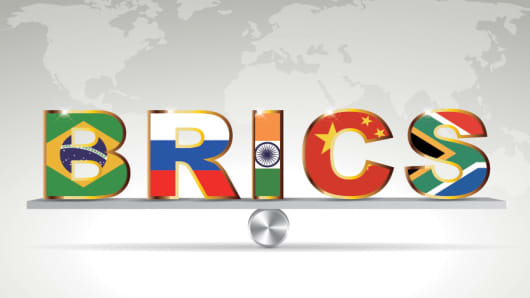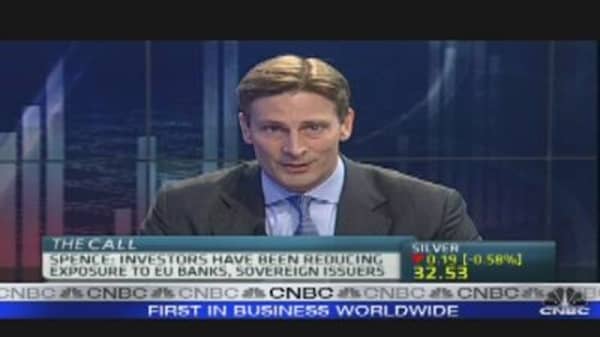Once hailed as a beacon for investors, emerging markets have lost their status as welcoming islands in the ocean of global turmoil.
The good news is that many market pros still see investments in the smaller countries of South America, Asia and elsewhere as reliable long-term plays.
But as recession fears take hold in the largest global regions and once-booming economies in China, Indiia and Brazil start to cool off, developing countries remain at the mercy of the global turmoil.
"We just think our economy and the potential European recession for next year does not bode well for the global economy," said Chip Cobb, portfolio manager at Bryn Mawr Trust in Bryn Mawr, Pa. "We like the emerging markets, but we think they're going to be lackluster until Europe gets its act together."
This has been a difficult year for U.S. stocks and global equities in general. But it's been especially miserable for emerging markets.
The Russell World Emerging Markets Index was off 4.1 percent in November alone and is down nearly 14 percent for the year, even though its three-year return is up a robust 21 percent.
An exchange-traded fund widely used to track the so-called BRIC nations — Brazil, Russia, India and China — has performed poorly as well, falling more than 20 percent off its early July peak as the once-formidable bloc has come under increasing pressure from global debt distress.
The iShares MSCI BRIC Index ETF, which mimics the index of the same name, also is showing signs of technical weakness, with another 8 percent drop likely, according to chart analyst Abigail Doolittle at Peak Theories Research.
"Basically the emerging market economies have still been quite vulnerable to developments in the industrialized world. A lot of their world is export-driven," said Brian Gendreau, market strategist at Cetera Financial, an El Segundo, Calif.-based broker-dealer. "Will they be able to escape the downturn in developed countries? I don't think so."
Still, Gendreau sees long-term prospects for developing economies, believing "there's still going to be quite a bit of growth in the emerging markets going forward."
Yet the problems in some of the countries cut deeper than reverberations from Europe's sovereign debt issues and the inability of the U.S. to find its way through a $15 trillion debt and $1.3 trillion budget deficit.
In South America, for instance, leftist governments "have not moderated their platforms after winning elections," according to an analysis from Bank of America Merrill Lynch. Venezuelan leader Hugo Chavez, for instance, has sought to stem inflation with price controls that have produced shortages and, consequently, only more inflation.
Analysts predict inflation this year of close to 30 percent in Venezuela.
"We expect significant fiscal expansion, including additional minimum wage increases, ahead of next year’s elections, to put upward pressure on prices," Credit Suisse analyst Casey Reckman said in a research note. "Unless accompanied by subsidized imports or devaluation, wide-ranging price controls could induce additional shortages, hoarding and informal market activity at higher prices."
In Russia, recent elections indicated a political turning of the tide similar to what happened in Arab countries earlier this year, when populist movements unseated authoritarian governments.
While it's too early to tell whether the upheaval will be on the same scale, changes clearly are coming to Russia that could cause destabilization in what was considered a significant global growth area.
"The developments in Russia highlight some of the key themes that we think will shape the year ahead: the necessity of understanding public opinion, the myth of permanent political stability, the rise of new political actors and the importance of maintaining the support of the middle class, who increasingly demand new social contracts between government and society," Citigroup analyst Tina M. Fordham said in a note.
"As we head into a year marked by elections, including in Russia, investors must take note of the lessons of the Arab Spring, and prepare for a Russian Winter," Fordham added.
Also, news out of Brazil Tuesday that gross domestic product actually contracted 0.04 percent in the previous quarter provided yet another shock.
Of course,China also is causing concern, though relatively speaking: The world's second-largest economy still grew 2.3 percent in the previous quarter, indicating that the nation, like its Asian counterparts, may just be taking a breather until the global tumult subsides.
"The issue for 2012 is whether this disappointing performance will worsen as contagion and recession spread or policy action will help to stabilize and improve returns," BofA analyst Claudio Piron said in an analysis of Asian fixed income. "We believe policy and fundamentals will ultimately prevail."





